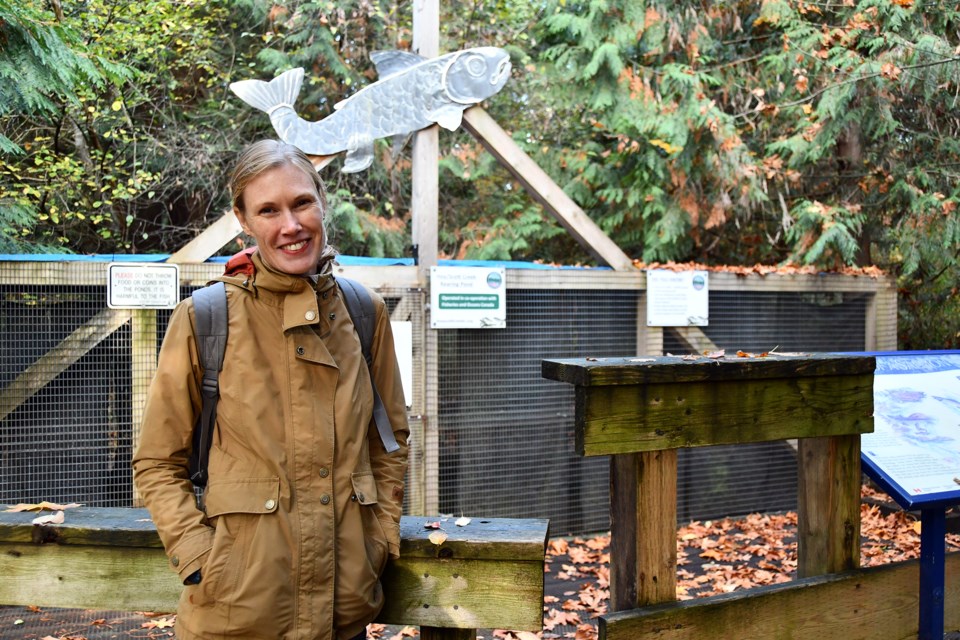It's not uncommon for Georgia Ohm to get approached at events the Coquitlam River Watershed Roundtable is at and be asked about its health.
"People are really concerned about how things are going in our watershed," Ohm told the Tri-City News today, Oct. 26, at the Hoy Creek Hatchery.
"The truth is, there's a lot of good news out there."
Ohm and others will be sharing their stories at the Roundtable's annual presentation happening on Thursday, Nov. 2, from 5 to 7 p.m. at the Pinetree Community Centre (1260 Pinetree Way); the meeting is called Vital Signs: Checking our Watershed’s Health.
The panel features five speakers — three from the City of Coquitlam:
- Angela Yeung will talk about the municipal water quality monitoring program
- Erin Gorby will lead on urban forests
- Laura Sampliner will offer an update on Coquitlam’s Climate Action Plan
As well, Jason McNair of Living Resources Environmental will speak about adult salmon returns to the Coquitlam River over the past two decades, while Rodney Lee will represent the kʷikʷəƛ̓əm (Kwikwetlem) First Nation (KFN) on the new sockeye salmon hatchery along the watercourse.
The public can ask questions afterwards. Ohm said the doors will also open at 4:30 p.m. for participants to come in early, speak with the panel members and look at information in the displays booths from the Hoy–Scott Creek Watershed Society, KFN, the Burke Mountain Naturalists and the City of Coquitlam's climate action team.
Drinking water to 1M
Ohm encourages the community to come out and hear what's happening to preserve the Coquitlam River watershed — one of the biggest in Metro Vancouver that provides drinking water to more than a million people, as well as power generation and habitat, and supports old-growth forests stretching from the Coquitlam Lake in the north to the Fraser River in the south.
"There is a huge population that relies on the watershed for drinking water, recreation and living," Ohm said, "and there is a lot of effort that's being done for the watershed to thrive, but there are so many pressures on the system."
Among those include development, which can cause potential soil erosion and flooding; invasive plant species; illegal dumping; and climate change.
This year, in particular, has been the worst fire season in B.C.'s history and a difficult drought season, which has an impact on forests and wildlife.
"There are so many facets that can change the environment very quickly and we have to be awareness of that and adapt to the new reality. It's hard to get a sense of the direction that things are going in…. We have to be really alert to the needs."
Still, she said, the water level in Coquitlam Lake is "pretty high," new technologies are coming onboard — like the recently installed Maple Creek pump station — and fish will soon be returning to the creeks and river to end their life cycle.
To register for the Coquitlam River Watershed Roundtable outreach, go to Eventbrite.ca. There is no cost to attend.





